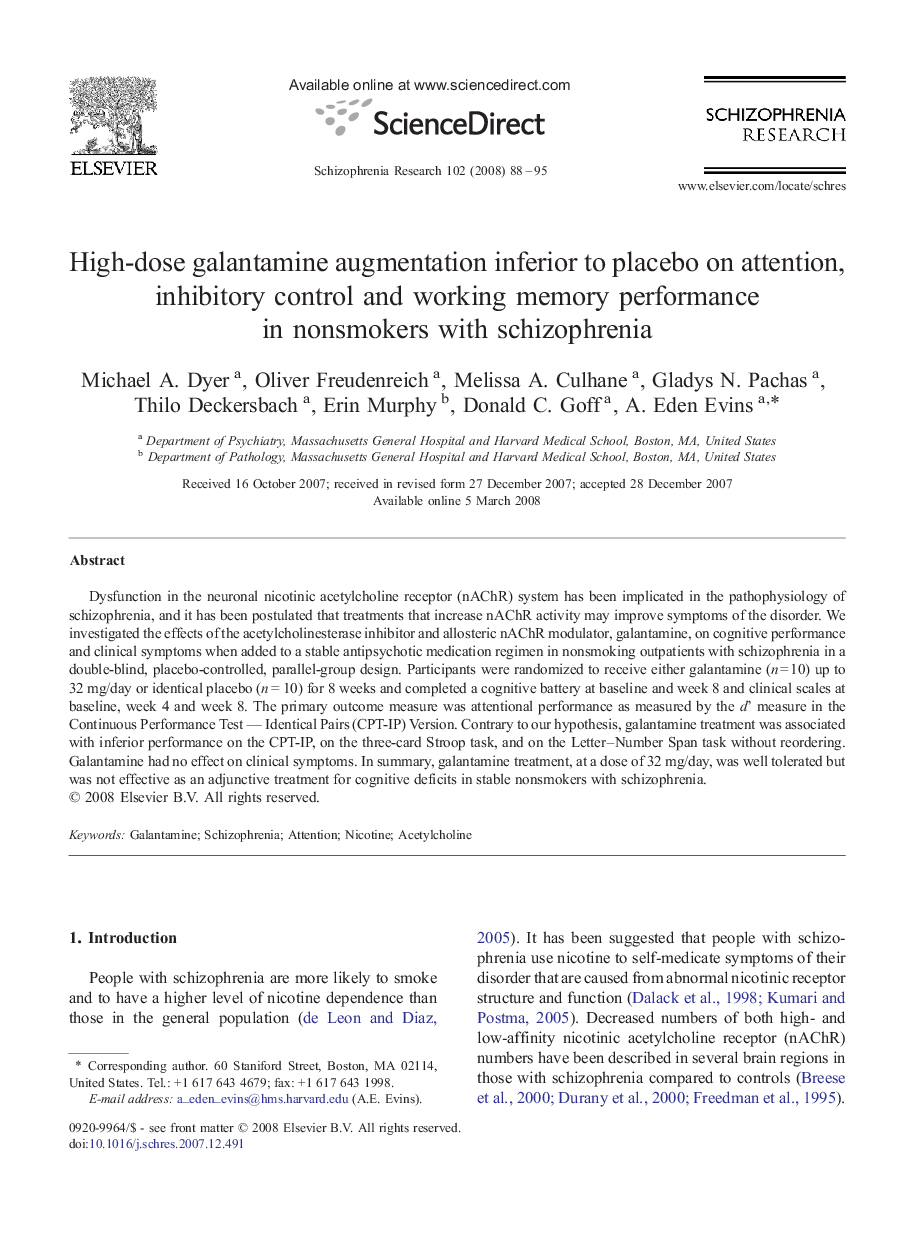| Article ID | Journal | Published Year | Pages | File Type |
|---|---|---|---|---|
| 339930 | Schizophrenia Research | 2008 | 8 Pages |
Dysfunction in the neuronal nicotinic acetylcholine receptor (nAChR) system has been implicated in the pathophysiology of schizophrenia, and it has been postulated that treatments that increase nAChR activity may improve symptoms of the disorder. We investigated the effects of the acetylcholinesterase inhibitor and allosteric nAChR modulator, galantamine, on cognitive performance and clinical symptoms when added to a stable antipsychotic medication regimen in nonsmoking outpatients with schizophrenia in a double-blind, placebo-controlled, parallel-group design. Participants were randomized to receive either galantamine (n = 10) up to 32 mg/day or identical placebo (n = 10) for 8 weeks and completed a cognitive battery at baseline and week 8 and clinical scales at baseline, week 4 and week 8. The primary outcome measure was attentional performance as measured by the d' measure in the Continuous Performance Test — Identical Pairs (CPT-IP) Version. Contrary to our hypothesis, galantamine treatment was associated with inferior performance on the CPT-IP, on the three-card Stroop task, and on the Letter–Number Span task without reordering. Galantamine had no effect on clinical symptoms. In summary, galantamine treatment, at a dose of 32 mg/day, was well tolerated but was not effective as an adjunctive treatment for cognitive deficits in stable nonsmokers with schizophrenia.
